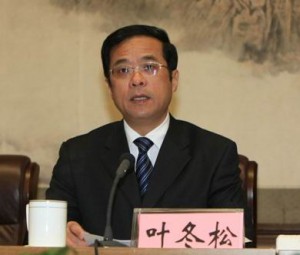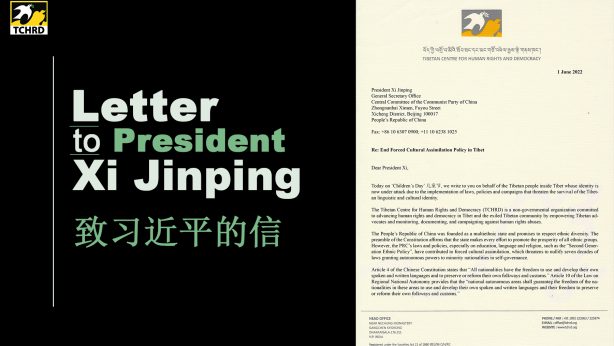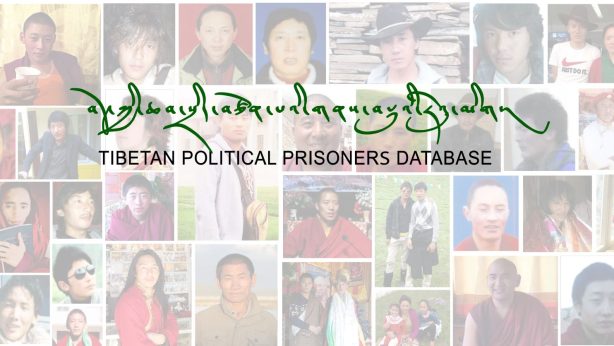China engages in political purge in the name of anti-corruption drive in Tibet

In January this year, official government-run media in the People’s Republic of China (PRC) announced [1] the first prosecutions of officials under the anti-corruption campaign in the Tibet Autonomous Region (TAR). The announcement specifically highlighted the punishment of 15 officials for supporting [2] the Dalai Lama.
The punishment of officials in Tibetan areas for supporting the Dalai Lama or not maintaining stability by striking hard is not a new development. The announcement simply demonstrates that the pre-existing policies have been added to the crackdown on corruption. The underlying repressive policies have been relabelled—not changed.
If the PRC had been serious about cracking down on corruption it could have rolled back policies implemented by Zhou Yongkang, who was arrested for corruption earlier in 2014. It could also have targeted local officials who use their position to receive benefits and bribes. Instead, the PRC used the anti-corruption campaign to make political attacks against officials in TAR. In August 2014, TCHRD called [3] on the PRC to use the anti-corruption campaign to improve the situation in Tibet. The most recent announcement demonstrates the PRC chose not to do so.
The officials were caught as part of the crackdown on corruption that began in TAR in July 2014. When the inspection was announced, [4] the purpose was to “expose corruption and close loopholes in Party management and government work.” The emphasis of the investigation was supposed to be officials who take bribes. From the start it was clear the campaign would also target officials that disagreed with the central leadership’s policies or did not implement them effectively.
By November, [5] the campaign focused more on targeting officials who follow the Dalai Lama. The head of the inspection team, Ye Dongsong, said he was investigating officials who failed to take a firm political stand and those with serious corruption issues. Support for the Dalai Lama, even if only for religious reasons, was equated with separatist activities.
The specific identities of the Tibetan officials and cadres punished in the campaign remain unclear. However, from the most recent report, it appears that targeting of corrupt officials became less important than continuing to punish officials who do not zealously implement repressive policies in Tibet. This policy already exists in Tibet. In response to the 2008 protests, the PRC required [6] all government officials to recall their children from schools based outside Tibet to avoid the influence of the Dalai Lama. In March 2012, Mr. Soegyam was fired for refusing to implement repressive guidelines in TAR. He was one of fourteen officials in TAR to be fired for refusing to implement the repressive policies. Later in 2012, six officials in Lhasa were demoted [7] for failing to maintain stability.
The PRC could maintain stability in Tibet more effectively by removing truly corrupt officials, rather than targeting officials that choose to support international human rights. For example, in Tsang Tobgyal Township [8] in Shigatse (Ch: Rikaze) Prefecture in TAR, the local Party Secretary refused to hear any complaints about a mining operation. This was because the mining company was giving him perks. Because the corrupt official refused to listen to the local community they staged a protest. Armed security responded by firing at the protesters. A pregnant woman was one of the 13 people injured.
It is unclear whether the Party Secretary was punished in the anti-corruption campaign. However, as the PRC invested 22% of the 1,494 reports [9] of official misconduct and punished between 45-60 officials, it is unlikely that the anti-corruption campaign actually punished corrupt officials.
The protest and the shooting in Tsang Tobgyal Township could have been avoided if the Party Secretary had listened to the local community and not been corrupt. Instead of emphasizing the removal of these corrupt officials, the anti-corruption campaign has focused on officials who support the Dalai Lama. This demonstrates that the anti-corruption campaign is little more than a political purge. Unless the PRC focuses on the corrupt official who are undermining stability by ignoring and attacking the Tibetan community, the anti-corruption campaign will accomplish nothing.
Endnotes
- Officials that aided Dalai Lama investigated in 2014, 27 January 2015, Global Times, available at http://www.globaltimes.cn/content/904366.shtml
- Communist Party officials punished for supporting Dalai Lama, 28 January 2015, International Campaign for Tibet, available at http://www.savetibet.org/communist-party-officials-punished-for-supporting-dalai-lama/#sthash.c3xU9P45.dpuf
- Anti-corruption crackdown in Tibet must focus on human rights abuses, 1 August 2014, TCHRD, available at https://tchrd.org/2014/08/anti-corruption-crackdown-in-tibet-must-focus-on-human-rights-abuses/
- Discipline inspectors look into Tibet, 28 July 2014, Xinhua, available at http://en.people.cn/n/2014/0728/c90882-8761681.html
- Two months’ ultimatum issued to Tibetan Communist Party members and government employees to recall their children studying in exile schools, 15 July 2008, TCHRD, available at https://tchrd.org/2008/07/two-months-ultimatum-issued-to-tibetan-communist-party-members-and-government-employees-to-recall-their-children-studying-in-exile-schools/
- China Demotes 6 Tibetan Officials in TAR, 18 May 2012, TCHRD, available at https://tchrd.org/2012/05/china-demotes-6-tibetan-officials-in-tar/
- Thirteen Wounded as Chinese Police Open Fire on Tibetan Anti-Mine Protesters, 10 January 2015, Radio Free Asia, available at http://www.rfa.org/english/news/tibet/wounded-10012014142936.html
- Officials that aided Dalai Lama investigated in 2014, 28 January 2015, Global Times, available at http://en.people.cn/n/2015/0128/c90785-8842047.html


